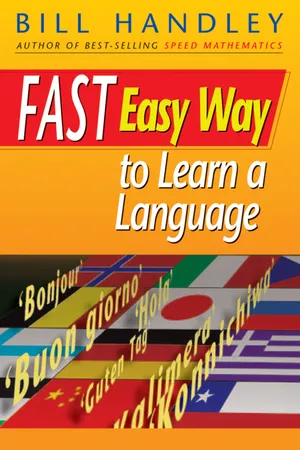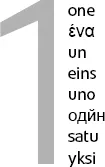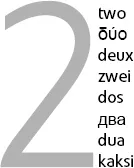![]()
Why learn a language?
For me, learning a language is a way to really get to know a people. I enjoy sitting on a bus in a foreign country conversing with strangers in their own language. I am part of their environment, not just an observer. I remember sitting in a streetcar in Poland discussing politics with my fellow travellers and thinking, I am getting first hand insight into the way Polish people think. Sitting at the table with East Germans in their homes discussing religion and politics provided some of my great memories of the country. I think of the picnics I was invited to and the time I spent with families while we lived in Europe and I realise that this could never have happened if we hadn’t spoken the language of our host country.
Learning someone’s language is an act of friendship. It gives you insight into how they think. There is a thrill that comes with your first successful attempt to converse with someone in their own language; when you first discover you are thinking in their language.
It is different visiting a country when you understand the language. It is much more exciting to ask directions in the language, shop in the language, take a train or bus, book a hotel room, order a meal. And the knowledge of the language required for this is fairly basic.
One of the first sentences I learn in any language is, ‘Excuse me. Do you speak . . . ?’ and then I learn the words for the languages I feel confident with. This helps when I get out of my depth: if an answer is complicated, or if someone replies by asking me something I don’t understand.
In your own country, you will make friends among people who are flattered you are making the attempt to learn their language.
Reasons for learning a language
Most people who learn a language have compelling and urgent reasons for doing so. Usually it is for business reasons — we have to travel and we want to be able to communicate. It could be that you deal with people or companies who do business in a foreign tongue. It will help if you speak the language of your supplier or your head office. Maybe all the manuals are written in Swedish or Korean; it will help if you can read them.
Maybe you are travelling to a holiday destination where people speak a different language. You will gain far more from the experience if you can speak at least some of the language.
Or you may have romantic reasons for learning the language — a marriage or a relationship. Perhaps speaking Vietnamese or Italian will help you to understand your spouse and your spouse’s family better. The language will introduce you to their culture.
Maybe you are studying or researching a topic on which most of the information is published in a foreign language. It will certainly help if you can go to the original sources. If you are studying overseas, you need a good knowledge of the language. (Although I do remember migrants to Australia arriving when I was a boy and they spoke no English — many of them were in my class at school and soon passed the rest of us in our studies. They learnt English remarkably quickly.)
It may be that you have to study a language, because you are studying a course that requires it. You have no say in the matter.
It could be for seemingly frivolous reasons: you like the sound of a language, you bought a cheap course in the language, you are interested in the origins of the language or your own language. You may just want to learn for the challenge or for the fun of it.
Learning a language will keep your brain young. It is a pleasant way to keep your mind in shape and get the brain working. Actually, Canadian psychologists released a report in 2004 which claimed that being bilingual or multilingual may help prevent some of the effects of ageing on brain function and delay the onset of Alzheimer’s. (The report is available online at <www.apa.org/journals/releases/pag192290.pdf>.)
Learning more than one foreign language
If you have already studied a foreign language, either at school or because your family spoke it or you lived for a time in a place where another language was spoken, you will find it easier to learn your next language. You will get better with practice, because you learn how to go about it, as well as understanding how grammar works better and seeing similarities and recognising origins or derivations of words. For instance, if you have learnt French, you will find it easier to learn Spanish or Italian. If you have studied German, you will find it easier to learn Dutch or any of the Scandinavian languages. A knowledge of Russian will give you a head start with any of the Slavic languages.
Once, while visiting the Hanover library, I found a Yiddish course with a book and phonograph records so I checked it out. I took it with me to the electronics firm where I worked and said to my colleagues, ‘Listen to this. Here is a Yiddish course I borrowed from the library.’ We listened. Their immediate reaction was, ‘Hey, we can understand Yiddish,’ because Yiddish is like a dialect of German. The language actually derives from old German. There are German dialects that I have trouble understanding, and many Germans can’t converse with their fellow countrymen because the dialects are unintelligible, but Yiddish seems to me to be easy to understand. (In the movie The Frisco Kid, the character played by Gene Wilder speaks in Yiddish to Amish people, but they can’t understand him, and he can’t understand them when they speak in German. I don’t know why — I had no trouble following both sides of the conversation in the movie!)
Even if the new language you want to study doesn’t belong to a language group you are familiar with, you will find you are still better prepared with each successive language that you study. Many people set out to learn one language and then find they are hooked. I look on each language as a new friend. It is fun getting to know your new friend better.
No matter what the reason, I assume you are motivated to learn a language (whether willingly or unwillingly). Whatever the reason, I will show you in the following chapters the easiest method to accomplish your goal.
![]()
Preparation
There is a proverb which I learnt as part of my German course, alle Anfänge sind schwer, or ‘all beginnings are difficult’. The problem is, when we embark on a new project, we look at the whole task and it seems to overwhelm us. There is so much to learn. How will we ever do it?
This prevents many people from making the attempt. They never begin because the task looks impossible. This applies to language learning as it does to all areas of life. The best approach is to break up your study time into small periods and set yourself some goals.
Using your time well
Many books and websites tell you that you need to spend at least three hours a day working on your language or you are wasting your time. Not so. I spent no more than thirty minutes a day learning survival Italian and spoke the language reasonably well in two weeks. It was enough for the basics and it enabled my family and me to travel on an Italian ship and to survive in Italy.
I learnt German spending between twenty and thirty minutes a day for around six months. Each day’s study was broken up into several chunks. I would spend five to ten minutes in the morning playing my lesson for the day on my cassette player and follow the text in my textbook. Then, at morning coffee, I would take out my textbook and read the lesson through. I would do this again in my lunch break and again at afternoon coffee break. I often commuted to work, so I would read the lesson through on the train morning and evening. Had I driven, I would have listened to the lesson in my car as well.
When I arrived home, I would play the tape again in the evening and read the lesson through one more time. Most of these sessions lasted five minutes and a maximum of ten to fifteen minutes. I was able to hold simple conversations with my German friends after around six weeks. After six month’s study of around thirty to forty minutes a day, I was able to speak the language in Germany without difficulty.
By breaking my study time into small chunks of five to ten minutes I was easily able to reach my objective.
On weekends I would try to spend some extra time using my other tools. While I was walking by myself in the street I would talk to myself in German. I would talk to myself while I was driving. I would hold conversations with myself and try to construct the sentences by myself. I usually carried a small dictionary so I could look up any words I didn’t know on the spot. This was the language I wanted to use and the language I needed — not the language that somebody else thought I should need or would be good for me to know.
So, I would ask for a daily commitment of half an hour broken up into small five-minute or ten-minute chunks spent on your ‘target language’ (the language you want to learn). This book will even give you a contingency plan for the days you just can’t be motivated to spend even half an hour on your language studies. If you are highly motivated and want to spend more time — maybe you have a deadline — you can spend longer each day and learn the language even faster.
I will also show you how you can utilise ‘lost’ time — time you didn’t know you had — to learn the language. The good news is that you don’t have to take time from other activities to do most of your language learning.
You will be your own teacher
When you learn a language the fast, easy way, you must be your own teacher. This may seem like a strange concept. How can you teach yourself something you don’t know? Shouldn’t you find yourself a teacher who knows the language?
Here is what I mean by being your own teacher: you will decide how you learn and what your learning materials will be. You can take advice, but the decisions will be yours. You will not learn the language according to just one method — you will use several methods simultaneously. Instead of working your way through a single textbook or language course, you will use several textbooks and as many other language teaching aids as you can.
Instead of working at learning the language, you will enjoy yourself playing with the language. You can do this even if you are studying for a school or college examination. Instead of hard work, learning a language will be a pleasure.
Choosing a language
Have you chosen the language you want to learn? If you are going to work in Sweden, work with Swedish operating manuals, or you are going to marry a Swede, the choice is made for you.
If you are going to be working in Eastern Europe, you need to know which is the best choice of language for you. It could be German or Russian rather than the language of the country where your head office is situated. Ask other people which language will be most useful. Everyone’s answer will be biased because his or her own language is always best. That is why your next question should be, ‘If I learn a second foreign language as well, which would be most useful?’
If you are travelling through South America, should you learn Spanish or Portuguese? It depends where you will spend most of your time and which language will be most useful to you in the long run.
I have often studied languages just because I could. Tempt me with a good language program today and I will take it. Learning any foreign language will broaden your horizons.
So, choose your language and prepare for the adventure.
Setting goals
You should have clear goals when you make your decision to study a language. You should set yourself a long-term goal and also short-term goals as you go.
I am often invited to speak to professional groups. I give many after-dinner speeches and speak at sales breakfasts. I teach strategies for succeeding in life. The first rule of success in ...







